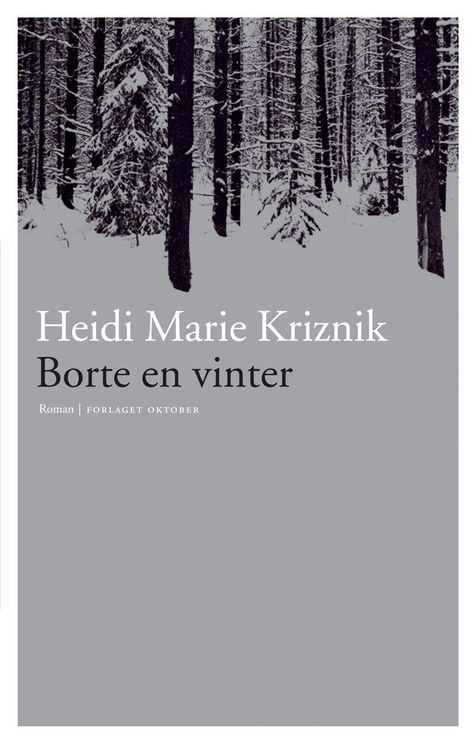Gone One Winter
”What a word, I said after we’d visited the undertaker. Lucia didn’t understand what I meant at first, and I had to repeat it; undertaker. I told her in English as well, and we looked at each other and laughed. Lucia is squatting in front of me right now, positioned in a way that makes…
”What a word, I said after we’d visited the undertaker. Lucia didn’t understand what I meant at first, and I had to repeat it; undertaker. I told her in English as well, and we looked at each other and laughed. Lucia is squatting in front of me right now, positioned in a way that makes the date of Astrid’s death visible just to the right, behind her head. I want to ask her to move. I change my position. Snowflakes take a soft landing on Lucia’s head.”
Zenz is a widower, an immigrant from Austria. He lives alone on a farm in Akershus that belongs to his father-in-law, the nazi supporter Jan Jeknes. Zenz is grieving the loss of Astrid, and is incapable of establishing a good relationship with his daughter Lucia. Every night, Jo, the postman comes over to watch TV because his satellite dish is broken. Or at least; that’s what Jo says.
Gone One Winter is a touching novel about friendship between two men, helpless love and loneliness.
Praise for Gone One Winter:
”A beautiful, low-key story of love and loss, unspoken friendships and fragile ties between human beings. The author hereby establishes herself among the best literary voices of Norway.”
8/10 stars, ABC Nyheter
”The credibility is in the details, the language, the confident voice … Kriznik has succeeded in painting a believable and at times moving portrayal of a man who has lost his wife and is on his last leg himself.”
Bergens Tidende
”The passages where grief overpowers Zenz in cunning ambushes are masterly – sharply carved, tightly edited, and consistently honest to the protagonist … Gone One Winter is at least as compassionately told as Applause, at least as beautiful and at least as tender.”
Dagsavisen
”It takes an author of stature to create art from literary and linguistic daily fare material … In all its simplicity, Gone One Winter is a profoundly touching story about being a human being. Applause!”
Nationen
”Kriznik succeeds in creating a credible and often moving story … a solid second novel, which in a unaffected language both touches and impresses.”
VG
”A tender, wary, beautifully observed story of loss and love that has no words”
Dagsavisen – The Critics’ Selected 2007
”A characteristic combination of linguistic caution and intensity … the linguistic roughness leaves plenty of room for both the unspoken and the unspeakable. It is this complexity that impresses most of all. It is just as hard and raw as it is wary and beautiful – with loneliness as the quivering basic feeling. This is the time of year to select the best books of the year. In my opinion, Kriznik has written the most beautiful.”
Hamar Arbeiderblad
”Scarce and beautiful … Kriznik builds Zenz up in a credible and touching way … Kriznik writes precisely and whittle away the superfluous, and we are left with a pure text that reaches all the way in and imparts great emotions.”
Adresseavisen
”a sparkling follow-up to a great debut. There is significant literary power in these books, and Kriznik touches a deep existential pain in the people she embodies. Recommended!”
Dag og tid
”Finely tuned … Kriznik shows great sensitivity in her portrayals of Zenz and Jo.”
Dagbladet
”Kriznik writes out a silent man’s lack of language in a brilliant manner … Kriznik’s mastery is giving this man a story worth reading that pulls in wide-stretching perspectives in few words.”
Morgenbladet
”impressively depicted … Kriznik excels with her ability to portray unpleasantness and difficulty, where the main character’s social helplessness provides a basis for it all … a confident novel about absence and presence.”
5/6 stars, Fredrikstad Blad

